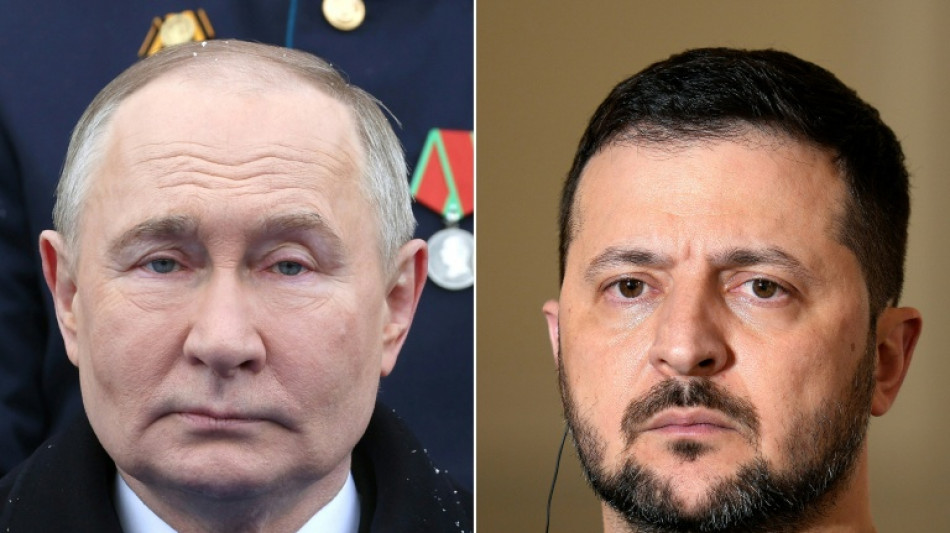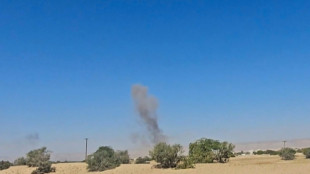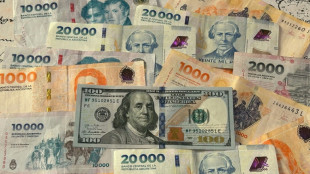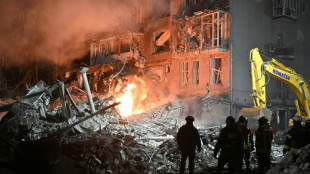

Zelensky wants Trump at peace talks, Russia silent on whether Putin will go
Ukrainian President Volodymyr Zelensky said Monday he wanted US counterpart Donald Trump to join peace talks with Russia in Turkey, but the Kremlin was silent about whether Russian President Vladimir Putin would attend.
The negotiations, planned to take place in Istanbul on Thursday, would be the first direct meeting between Ukrainian and Russian officials since the early months of Moscow's invasion in 2022.
Putin proposed the talks as a counteroffer to a 30-day ceasefire put forward by Kyiv and its allies, but while Zelensky said he would attend "personally", the Kremlin declined to say whom Russia would send.
Trump told reporters earlier he would go if he "thought it would be helpful".
Turkish President Recep Tayyip Erdogan urged the warring sides on Monday to seize the "window of opportunity" to reach a peace settlement.
Tens of thousands have been killed and millions forced to flee their homes since Russia invaded Ukraine in February 2022, while Moscow's army now controls around one-fifth of the country -- including the Crimean peninsula, annexed in 2014.
Kyiv's allies had proposed a 30-day ceasefire starting from Monday, insisting that it be in place for talks to happen, but Moscow effectively ignored this call by launching a barrage of drones at Ukraine overnight.
"Russians are completely ignoring the offer of a full and durable ceasefire starting on May 12," Ukrainian Foreign Minister Andriy Sybiga said.
"They continue to attack Ukrainian positions all along the frontline."
- 'How long can it last?' -
Raising the stakes after a weekend of intense diplomacy, Zelensky said he would be willing to meet Putin in Turkey "personally".
"I have openly expressed my readiness to meet," the Ukrainian leader said on Monday.
"I hope that the Russians will not evade the meeting."
When asked whom Russia would send to Istanbul, the Kremlin declined to comment.
"We are focused on a serious search for ways to achieve a long-term peaceful settlement," Kremlin spokesman Dmitry Peskov told reporters, without elaborating.
Peskov had earlier criticised European countries for pressuring Russia to accept a 30-day ceasefire ahead of the proposed talks.
"The language of ultimatums is unacceptable to Russia. It is not appropriate. You cannot talk to Russia in such a language," Peskov told journalists.
Russia fired more than 100 drones at eastern Ukraine overnight, killing one person and wounding six, as well as damaging railway infrastructure and residential buildings, local officials said.
Residents in Bilytske, a small industrial town in east Ukraine, remained sceptical about the prospect of a ceasefire.
"We don't really believe, of course, but we hope," Alla, who woke up to the sound of explosions, told AFP.
Alyona, 39, standing next to her, said Putin and Zelensky needed to start negotiating.
"How long can it last? It's been three years already."
- 'Root causes' -
Putin has said any direct talks with Ukraine should focus on the "root causes" of the conflict, and did not "exclude" a possible ceasefire coming out of any talks in Istanbul.
Russia's references to the "root causes" of the conflict typically refer to alleged grievances with Kyiv and the West that Moscow has put forward as justification for its invasion.
They include pledges to "de-Nazify" and de-militarise Ukraine, protect Russian speakers in the country's east and push back against NATO expansion.
Kyiv and the West have rejected all of them, saying Russia's invasion is nothing more than an imperial-style land grab.
Russian and Ukrainian officials held talks in Istanbul in March 2022 aimed at halting the conflict but did not strike a deal.
Contact between the warring sides has been extremely limited since, mainly dedicated to humanitarian issues like prisoner-of-war exchanges and the return of killed soldiers' bodies.
EU leaders, including France's Emmanuel Macron and Germany's Friedrich Merz, have welcomed the prospect of direct talks, but pressed Russia to agree to a ceasefire first.
Germany warned the "clock is ticking" for Russia to agree by the end of Monday to an unconditional 30-day ceasefire in Ukraine or face potential new sanctions.
Russia's key ally China on Monday called for a "binding peace agreement" that was "acceptable to all parties".
K.Thompson--PI




